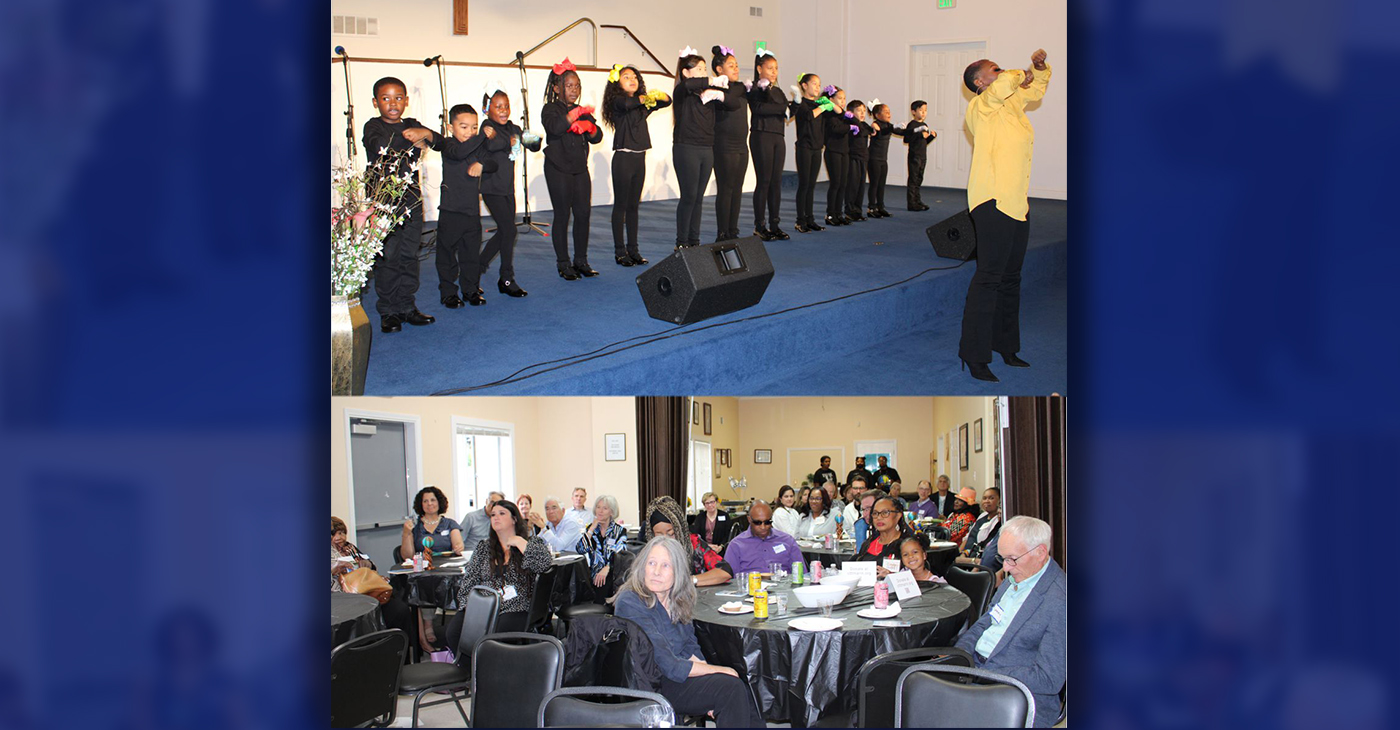Marin County
County Takes Key Steps on 5G Policy

Ordinance and regulations approved; next-generation cell service still years away
Whenever telecommunications companies are ready to start installing small cell wireless facilities in the unincorporated areas of Marin County, they’ll have to adhere to new regulations approved July 9 by the Marin County Board of Supervisors.
As recommended by staff from the Marin County Community Development Agency (CDA), the Board of Supervisors unanimously approved an urgency ordinance and new policy regarding the installation of small cell wireless facilities, including the fifth-generation cellular wireless technology within public roads. The new policy goes into effect immediately.
CDA oversees the County’s telecommunications plan and created the guidelines to regulate the permitting, design, and location of the small wireless facilities within the public roads. The regulations outline the requirements for small cell wireless facilities, including 5G application, and installation procedures, establish the County’s location preferences and design standards, lay out public notification procedures, and cover the appeal process.
Antennas for 5G are much smaller than those necessary for the existing 4G system. 5G devices would be installed closer to cell phone users, often affixed to existing light poles, utility poles, and traffic light poles within the public right-of-way, including in residential districts. It’s likely the installation will not happen for several years.
The County’s existing Telecommunications Facilities Policy Plan (TFPP) was first adopted in 1990 and comprehensively updated in 1998 – more than 20 years ago. The plan did not explicitly address small cell wireless facilities. Similarly, the telecommunications facilities ordinance, Section 22.32.165, also does not include explicit standards applicable to small cell wireless facilities within public roads.
At the Board session, Supervisor Dennis Rodoni, who served on a Board subcommittee on 5G technology with Supervisor Damon Connolly, said there were many strong suggestions from residents concerned about 5G implementation and those in favor of stronger wireless connectivity. He emphasized that town, city, and county governments have permitting authority over such 5G antenna installations, not state or federal governments.
“At this point I think we’re better off erring on the side of having something on the record and not waiting one or two months. “… This is a start, and we can revise it if we need to.”
Connolly said he also appreciated the concerns of residents about the proliferation of small-cell antennas in residential neighborhoods.
“I believe this ordinance strikes a difficult balance given the current state of federal law through FCC regulation,” Connolly said. “I’m hopeful that current or future legislation will address some of the concerns raised today. … While we push for changes at the federal level, I believe this urgency ordinance is necessary and provides an objective set of standards for the deployment of small-cell technology in unincorporated Marin.”
Board President Kate Sears described the ordinance as the strongest one that the County can develop at this point given the challenges at the federal level and ongoing proposed legislation. She encouraged staff to share more information on the County website about 5G implementation and local control of antenna installations.
“I think a lot of time has been put into this and a lot of very careful thought, and it’s a step forward,” she said. “We don’t benefit from delaying.”
Bay Area
Marin County Board of Supervisors Honors FMBC’s 80th Anniversary
The First Missionary Baptist Church (FMBC), will be celebrating their 80th church anniversary on Sunday, Nov. 17 at 10 a.m. at 501 Drake Ave., in Marin City. The Marin County Board of Supervisors has passed a resolution to honor FMBC’s 80th anniversary.

By Godfrey Lee
The First Missionary Baptist Church (FMBC), will be celebrating their 80th church anniversary on Sunday, Nov. 17 at 10 a.m. at 501 Drake Ave., in Marin City.
The Marin County Board of Supervisors has passed a resolution to honor FMBC’s 80th anniversary. The resolution reads as follows:
- FMBC, a distinguished member of the religious community in Marin County, is celebrating its 80th Anniversary in commemoration of this significant milestone.
- FMBC has provided spiritual nurture and education to its congregation and has extended humanitarian concern and compassion throughout the Marin County community. Throughout its long and impactful history, FMBC has been guided by dedicated and faithful leaders.
- The completion of eighty years of tireless service to its congregation and community reflects the steadfast devotion of countless individuals – both religious and lay – who embody the teachings of the Lord.
- FMBC shares a unique, rich, and dynamic history with Marin City and Marin County at large, having been established in 1944 in the living room of Rev. W.E. Franklin, serving the workers of Sausalito Marinship.
- FMBC, throughout its rich 80 years of history, continues to provide service and support to Marin City and the County in the areas of mentoring, mental health advocacy, social justice, domestic & gun violence, and climate resilience.
Now, Therefore, Be It Resolved that the Marin County Board of Supervisors honors First Missionary Baptist Church on its 80th Anniversary, recognizing its profound impact on the Marin City community and its unwavering commitment to service, faith, and hope.
The Resolution was passed and adopted at a regular meeting of the Board of Supervisors of the County of Marin on Nov. 5, 2024. It was signed by Dennis Rodini, president, District 4, and District 3 Supervisor Stephanie Moulton-Peters.
Alameda County
Access Better Health with Medically Tailored Meals – Transforming Health Through Nutrition for Medi-Cal Patients
Launched in 2018, the Medically Tailored Meals pilot program was designed to help Medi-Cal patients with congestive heart failure by reducing hospital readmissions and emergency department visits by providing tailored meals meeting specific dietary needs. The program’s success in improving health outcomes and reducing costly emergency room visits encouraged the Department of Health Care Services (DHCS) to expand the Medically Tailored Meals program to all 58 counties through Medi-Cal transformation and a new set of services called Community Supports.

Advertorial
Launched in 2018, the Medically Tailored Meals pilot program was designed to help Medi-Cal patients with congestive heart failure by reducing hospital readmissions and emergency department visits by providing tailored meals meeting specific dietary needs.
The program’s success in improving health outcomes and reducing costly emergency room visits encouraged the Department of Health Care Services (DHCS) to expand the Medically Tailored Meals program to all 58 counties through Medi-Cal transformation and a new set of services called Community Supports.
Medically Tailored Meals are one of 14 new services offered through Medi-Cal that provide members with access to new and improved services to get well-rounded care that goes beyond the doctor’s office or hospital.
Medically Tailored Meals: Overview
Malnutrition and poor nutrition can lead to severe health outcomes, especially among Medi-Cal patients with chronic health conditions. Medically Tailored Meals aim to improve health outcomes, reduce hospital readmissions, and enhance patient satisfaction by providing essential nutrition.
Key Features:
- Post-Discharge Delivery: Meals are delivered to patients’ homes immediately following discharge from a hospital or nursing home.
- Customized Nutrition: Meals are tailored to meet the dietary needs of those with chronic diseases, designed by registered dietitians (RD) or certified nutrition professionals based on evidence-based guidelines.
- Comprehensive Services: Includes medically tailored groceries, healthy food vouchers, and food pharmacies.
- Educational Support: Behavioral, cooking, and nutrition education is included when paired with direct food assistance.
Key Benefits:
- Address Food Insecurity: Mitigates poor health outcomes linked to food insecurity.
- Support Complex Care Needs: Tailored to individuals with chronic conditions.
- Improve Health Outcomes: Studies show improvements in diabetes control, fall prevention, and medication adherence.
Patient Testimonial:
“My diabetes has gotten better with the meals. I’ve kept my weight down, and I feel much better now than I have in a long time. I’m one of the people this program is meant for.” — Brett
Eligibility:
- Eligible Populations: Eligible Medi-Cal members include those with chronic conditions like diabetes, cardiovascular disorders, congestive heart failure, stroke, chronic lung disorders, HIV, cancer, gestational diabetes, and chronic mental or behavioral health disorders. Also, those being discharged from a hospital or skilled nursing facility or at high risk of hospitalization or nursing facility placement are also eligible.
- Service Limitations: Up to two meals per day for up to 12 weeks, extendable if medically necessary. Meals eligible for reimbursement by alternate programs are not covered.
Cost Savings and Improved Health Outcomes:
- Health Outcomes: Research indicates a 22% to 58% decrease in emergency department visits and a 27% to 63% decrease in inpatient admissions among Medically Tailored Meals recipients, translating to significant health care cost savings.
Project Open Hand: A Success Story
Project Open Hand has been a leader in providing Medically Tailored Meals, significantly impacting the lives of Bay Area Medi-Cal patients with chronic illnesses. Since its inception, Project Open Hand has delivered nutritious meals to individuals with diabetes, HIV, and other serious health conditions, demonstrating remarkable health improvements and cost savings.
Key Achievements:
- Improved Health Outcomes: Project Open Hand’s research found a 50% increase in medication adherence among recipients of Medically Tailored Meals.
- Reduced Hospitalizations: Their program showed a 63% reduction in hospitalizations for patients with diabetes and HIV.
- Enhanced Quality of Life: Patients reported better health and increased energy levels.
Project Open Hand ensures that each meal is prepared using fresh, wholesome ingredients tailored to meet the specific dietary needs of its clients. By partnering with Medi-Cal managed care plans, Project Open Hand continues to provide life-saving nutrition to those who need it most.
Join Us in Our Mission
You can experience the profound impact of Medically Tailored Meals by joining the Medi-Cal Community Supports services initiative. Your involvement can make a difference in promoting your health through nutrition.
Learn More
For more information about Medically Tailored Meals and how to get involved, call the state’s Medi-Cal Health Care options at 800-430-4263 or contact your local managed care plan.
In Alameda County, Medi-Cal recipients can contact:
* Alameda Alliance for Health: 510-747-4567
* Kaiser Permanente: 855-839-7613
In Contra Costa County, Medi-Cal recipients can contact:
* Contra Costa Health Plan: 877-661-6230
* Kaiser Permanente: 855-839-7613
In Marin County, Medi-Cal recipients can contact:
* Partnership Health Plan of California: 800-863-4155
* Kaiser Permanente: 855-839-7613
In Solano County, Medi-Cal recipients can contact:
* Partnership Health Plan of California: 800-863-4155
* Kaiser Permanente: 855-839-7613
Your health and well-being are your health care provider’s top priority. Medically Tailored Meals are designed to enhance quality of life by advancing health care through the power of nutrition. Experience the benefits today, and take the first step toward a healthier you.
Bay Area
Marin County Seeks Input on Community Needs from Marin City, San Rafael Residents
You can make a difference. Please spend a few minutes to take the Marin County Housing & Community Needs Survey @ surveymonkey.com/r/marincountyconplan, or go to the www.marincounty.gov/conplan2025 website, and share your ideas on what Marin County’s priorities should be for the next five years.

By Godfrey Lee
You can make a difference.
Please spend a few minutes to take the Marin County Housing & Community Needs Survey @ surveymonkey.com/r/marincountyconplan, or go to the www.marincounty.gov/conplan2025 website, and share your ideas on what Marin County’s priorities should be for the next five years.
There will also be two community meetings where you can also share your ideas and concerns.
The community meeting for San Rafael will be held at the San Rafael Community Center at 618 B St. in San Rafael, on Monday Oct. 21 from 6 p.m. to 8 p.m. The meeting will be attended by the Fair Housing Advocates of Northern California.
The community meeting for Marin City will be held at the Marguerita C. Johnson Senior Center at 640 Drake Ave. in Marin City, on Tuesday, Oct. 22, from 6 p.m. to 8 p.m. The meeting will be attended by Performing Stars.
Food and Spanish translation services will be provided at all meetings. Childcare is available upon request.
-

 California Black Media4 weeks ago
California Black Media4 weeks agoCalifornia to Offer $43.7 Million in Federal Grants to Combat Hate Crimes
-

 Black History4 weeks ago
Black History4 weeks agoEmeline King: A Trailblazer in the Automotive Industry
-

 California Black Media4 weeks ago
California Black Media4 weeks agoGov. Newsom Goes to Washington to Advocate for California Priorities
-

 Activism4 weeks ago
Activism4 weeks agoOakland Post: Week of November 27 – December 3, 2024
-

 California Black Media4 weeks ago
California Black Media4 weeks agoCalifornia Department of Aging Offers Free Resources for Family Caregivers in November
-

 Activism2 weeks ago
Activism2 weeks agoButler, Lee Celebrate Passage of Bill to Honor Congresswoman Shirley Chisholm with Congressional Gold Medal
-

 Activism2 weeks ago
Activism2 weeks agoPost News Group to Host Second Town Hall on Racism, Hate Crimes
-

 Activism2 weeks ago
Activism2 weeks agoDelta Sigma Theta Alumnae Chapters Host World AIDS Day Event















































